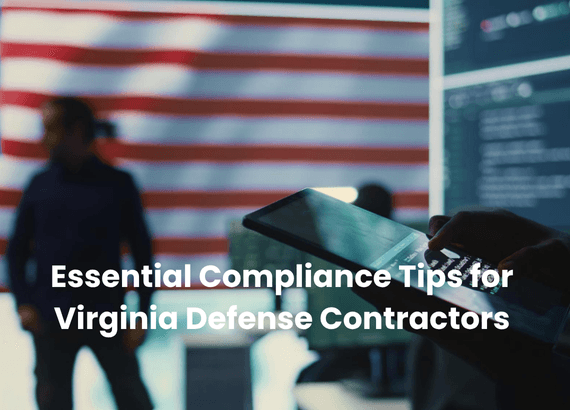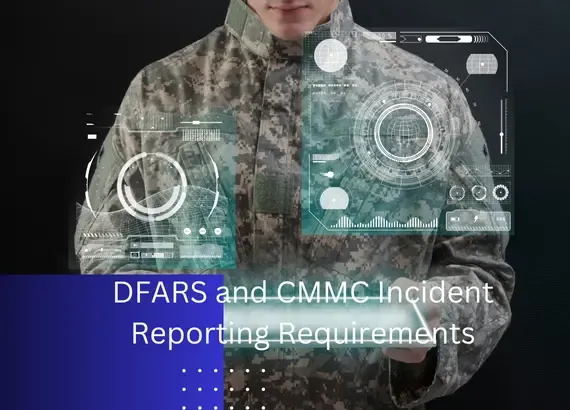
Understanding ITAR: What It Means for Your Business
Introduction
The International Traffic in Arms Regulations (ITAR) is a critical compliance framework for businesses handling defense-related products, services, and data in the United States. ITAR ensures that sensitive military technologies do not fall into the wrong hands by regulating exports and safeguarding national security. However, many businesses struggle to understand whether ITAR applies to them and what compliance entails.
This guide simplifies ITAR, explaining who needs to comply, key requirements, and how businesses can protect themselves from violations.
What is ITAR?
ITAR is a set of U.S. government regulations enforced by the Department of State’s Directorate of Defense Trade Controls (DDTC). It governs the export, re-export, and brokering of defense-related articles and services listed on the United States Munitions List (USML).
Key ITAR Objectives:
Prevent unauthorized access to U.S. defense technologies
Control exports of military equipment, software, and technical data
Ensure only approved parties access sensitive information
Who Needs to Comply with ITAR?
If your business manufactures, exports, or deals with defense-related items, you are likely subject to ITAR regulations. This includes:
Defense contractors and subcontractors
Manufacturers of military equipment or software
Technology firms dealing with defense-related technical data
Universities and research institutions handling ITAR-controlled data
Companies using third-party vendors that work with defense technologies
Even if your business does not directly work with military products, handling ITAR-covered data or partnering with ITAR-compliant organizations may still require compliance.
ITAR Key Requirements
Complying with ITAR involves strict control over defense-related exports, data protection, and personnel access. Here are the key obligations:
1. Register with DDTC
Businesses engaged in manufacturing, exporting, or brokering defense articles and services must register with the DDTC and renew annually.
2. Identify ITAR-Controlled Items
ITAR applies to any product, software, or data on the USML. Businesses must:
Classify their products and determine if they fall under ITAR
Label ITAR-controlled items appropriately
Prevent unauthorized access or export
3. Restrict Access to U.S. Persons Only
Only U.S. citizens and authorized personnel can access ITAR-controlled data and products. Sharing information with foreign nationals (including employees) without authorization is a violation.
4. Obtain Export Licenses
Exporting ITAR-controlled items outside the U.S. requires an export license from the DDTC. Unauthorized exports can result in severe penalties.
5. Secure Data & IT Systems
ITAR compliance requires businesses to protect controlled technical data by:
Using secure IT systems compliant with NIST 800-171 and CMMC standards
Implementing access controls and encryption
Restricting cloud storage to U.S.-based, ITAR-compliant platforms like Microsoft GCC High
6. Maintain Compliance Records
ITAR-compliant companies must document compliance efforts, including:
Export licenses and transaction records
Employee training and access controls
Incident reports and security measures
Explore Now: What CMMC 2.0 Explained & How It Impacts Your Business
ITAR Non-Compliance: Risks & Penalties
Failing to comply with ITAR can lead to serious legal and financial consequences, including:
Fines up to $1 million per violation
Criminal charges leading to imprisonment
Bans on doing business with the U.S. government
Loss of contracts and reputational damage
Recent cases have shown how companies unintentionally violating ITAR faced heavy penalties, reinforcing the need for strict compliance.
How to Ensure ITAR Compliance
To stay compliant, businesses should:
✅ Register with the DDTC and understand their responsibilities
✅ Classify products under the USML and restrict access
✅ Implement security measures for technical data protection
✅ Train employees on ITAR requirements and risks
✅ Work with ITAR-compliant vendors for cloud storage and IT solutions
✅ Conduct regular compliance audits
For organizations handling sensitive defense information, ITAR compliance is not optional—it’s a necessity.
Understanding ITAR is the first step toward avoiding penalties, securing government contracts, and ensuring national security compliance. If your business deals with defense-related products, services, or data, compliance is crucial.
Need help navigating ITAR requirements? Contact CMMCITAR today for expert guidance and tailored compliance solutions.


